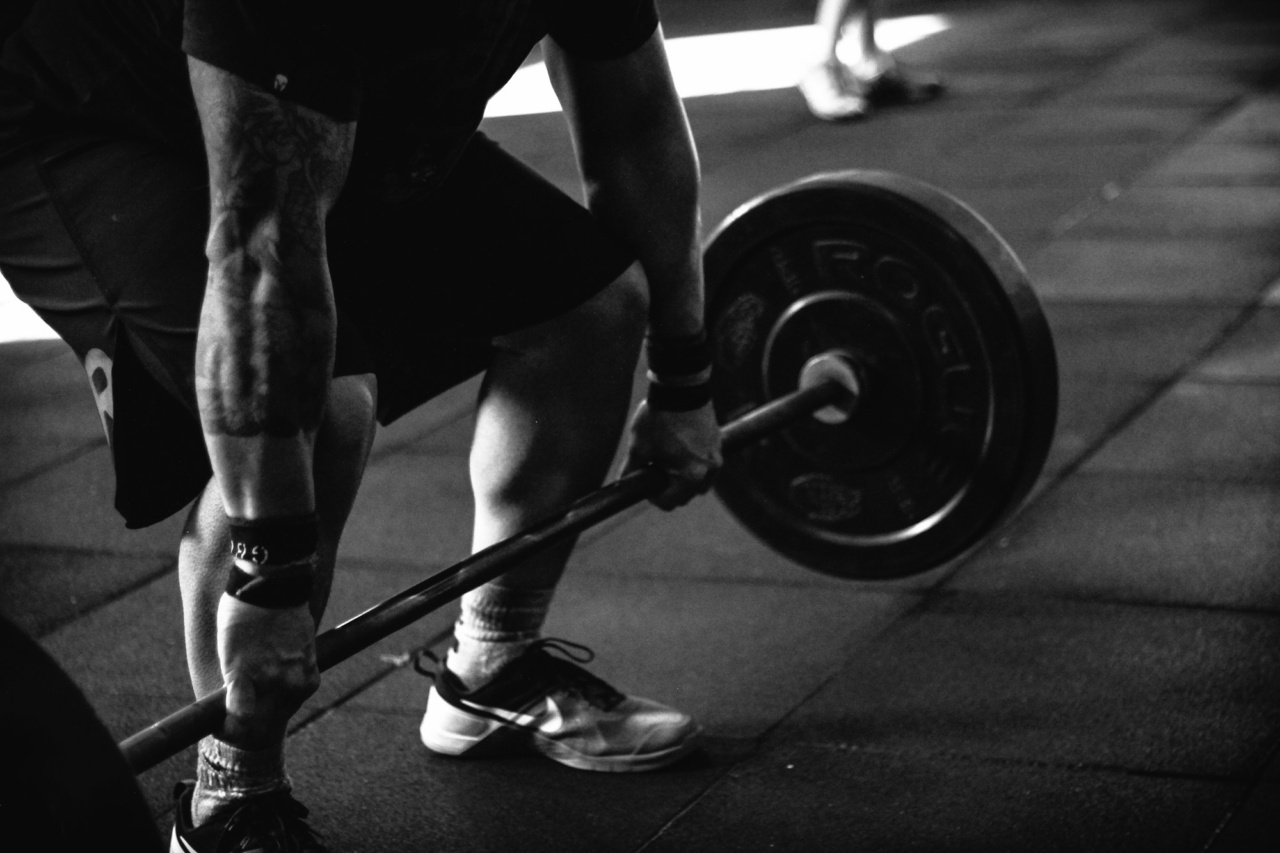Having pain and discomfort in our muscles is something most of us have experienced at some point in our lives. Whether it’s due to an intense workout, a long day at work, or simply bad posture, muscle pain can be both debilitating and frustrating.
While there are various methods to alleviate muscle pain, one highly effective approach is through exercise. Engaging in specific exercises can help settle muscle pain and provide relief. In this article, we will explore the best exercise for pain relief and how it can benefit you.
The Importance of Exercise for Pain Relief
Exercise has long been recognized as a way to improve overall health and wellbeing. But when it comes to pain relief, its benefits go beyond just physical fitness. Regular exercise can help reduce pain by:.
Improving circulation
Engaging in exercise increases blood flow to the muscles, promoting oxygen and nutrient delivery. This enhanced circulation helps reduce inflammation and promotes healing, ultimately relieving pain.
Releasing endorphins
Endorphins are chemicals produced by the body that act as natural painkillers. Exercise triggers the release of endorphins, creating a sense of well-being and reducing muscle pain.
Strengthening muscles
Weak muscles can contribute to pain and discomfort. By regularly exercising and strengthening muscles, you can improve their resilience and reduce the likelihood of experiencing pain.
The Best Exercise for Pain Relief: Stretching
When it comes to settling muscle pain and relieving discomfort, stretching exercises often hold the key. Stretching helps alleviate pain by:.
Increasing flexibility
Stretching exercises improve the flexibility and range of motion of your muscles and joints. This increased flexibility helps reduce muscle tension and subsequently minimizes pain.
Relaxing muscle tension
Tight muscles often contribute to pain. Stretching helps relax and lengthen these muscles, relieving tension and discomfort.
Specific Stretching Exercises for Pain Relief
Not all stretching exercises are created equal when it comes to pain relief. Below are some specific stretching exercises that are particularly beneficial for settling muscle pain:.
1. Hamstring Stretch
To perform a hamstring stretch, sit on the ground with your legs extended in front of you. Slowly lean forward and reach for your toes, feeling the stretch in the back of your legs. Hold this position for 30 seconds and repeat 3-5 times on each leg.
This stretch provides relief for tight hamstrings that can cause lower back pain.
2. Quadriceps Stretch
To stretch the quadriceps muscle, stand tall and bring one foot towards your glutes by grabbing your ankle. Keep your upper body straight and push your foot against your hand, feeling the stretch in the front of your thigh.
Hold for 30 seconds and repeat 3-5 times on each leg. This stretch helps alleviate knee pain caused by tight quadriceps.
3. Child’s Pose
The child’s pose stretch targets the lower back and provides relief for back pain. Start on all fours, then sit back on your heels while reaching your arms forward. Lower your head toward the ground and hold this position for 30 seconds.
Repeat as needed to relax your lower back.
4. Shoulder and Chest Stretch
To stretch your shoulders and chest, stand tall and clasp your hands behind your back. Gently lift your hands upward as you squeeze your shoulder blades together. Hold for 30 seconds and repeat as necessary to relieve tension and pain in the upper body.
5. Neck Stretch
Sit or stand tall and slowly tilt your head to the right, trying to touch your ear to your shoulder without raising your shoulder. Feel the stretch on the left side of your neck. Hold for 30 seconds, then repeat on the other side.
This stretch helps relieve neck stiffness and pain.
6. Hip Flexor Stretch
To stretch your hip flexors, kneel on one knee with the other foot flat on the ground in front of you. Lean forward slightly, feeling the stretch in the front of your hip. Hold for 30 seconds and repeat on the other side.
This stretch is particularly beneficial for individuals with hip or lower back pain.
7. Calf Stretch
To stretch your calf muscles, stand facing a wall with one foot in front of the other. Lean forward, placing your hands on the wall, and keep your back leg straight with the heel on the ground. Hold for 30 seconds and repeat on the opposite side.
This stretch helps relieve pain and tightness in the calf muscles.
8. Wrist Stretch
To stretch your wrists, extend one arm in front of you with your palm facing up. Use your other hand to gently pull your fingers towards your body until you feel a stretch in your forearm. Hold for 30 seconds and repeat on the other arm.
This exercise is particularly beneficial for individuals who often experience wrist pain from activities like typing or repetitive motions.
9. IT Band Stretch
The IT band stretch targets the iliotibial band, which can cause knee and hip pain if tight. Stand next to a wall or sturdy object, cross one leg behind the other, and lean toward the wall. You should feel a stretch on the outside of your leg.
Hold for 30 seconds and repeat on the other side.
10. Back Extension
To perform a back extension stretch, lie on your stomach with your hands placed under your shoulders. Slowly push your upper body up, keeping your pelvis on the ground. Hold for 30 seconds and repeat as needed to relieve back pain and stiffness.
Conclusion
When it comes to settling muscle pain and finding relief, exercise is a powerful tool.
Incorporating specific stretching exercises into your routine can help improve circulation, release endorphins, and strengthen muscles, ultimately alleviating pain and discomfort. Remember to consult with a healthcare professional before starting any exercise program, especially if you have pre-existing conditions or chronic pain.
With the right exercises and proper technique, you can become a muscle settler and bid farewell to pain for good.




























